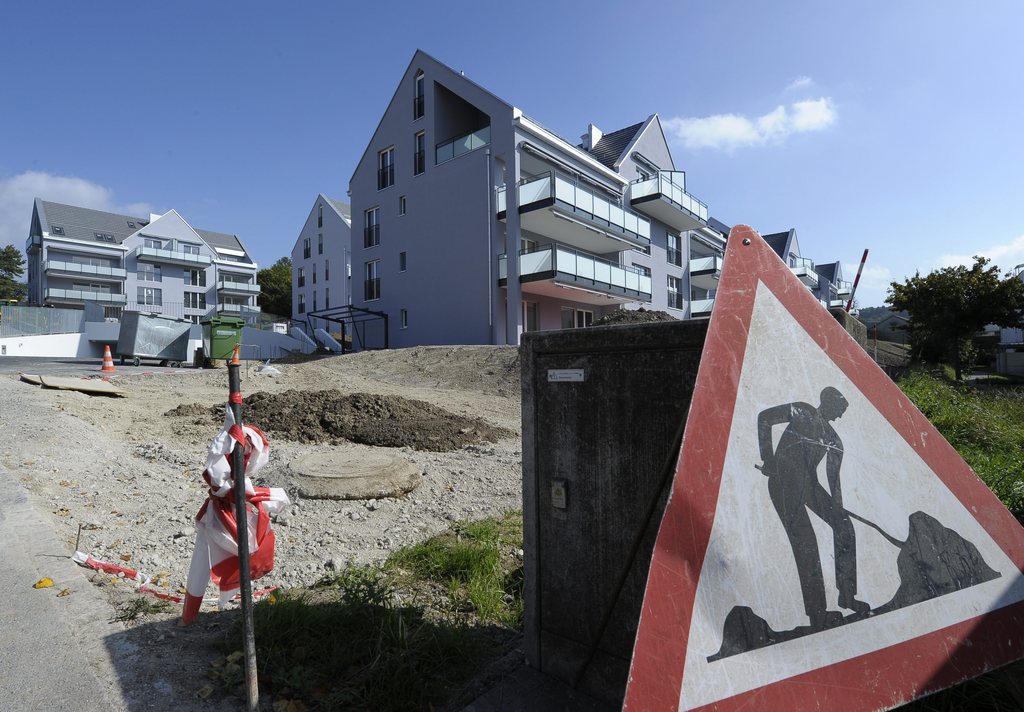Mortgage lending restriction irritates banks

The Swiss government has come under fire after forcing banks to set aside more capital to cover the risk of mortgage loan defaults. The February 13 decision was prompted by fears of a bubble in property prices bursting.
As of September 30, banks must boost their capital buffers against domestic mortgage loans by another one per cent. This would mean around SFr3 billion ($3.3 billion) extra capital being tied down in the banking system.
The government issued the order on the recommendation of the Swiss National Bank (SNB) as property prices in major cities and tourist regions continue to rise.
Home prices are estimated to have gone up by nearly a third across Switzerland in the last decade and by up to 136 per cent in Geneva, according to real estate analysts. This has brought back memories of a bursting bubble 25 years ago, that cost SFr50 billion ($54 billion) in losses and put some banks out of existence.
“Current imbalances are still smaller than those immediately prior to the onset of the real estate and banking crisis at the end of the 1980s,” the SNB said in a statement.
“Nevertheless, to reduce the risk of the Swiss economy experiencing a similarly severe crisis in the medium term, it is important that action be taken before the magnitude of the imbalances becomes so great that measures can no longer be applied preventively.”
Criticism
But the Swiss Bankers Association (SBA) branded the move as premature, accusing the government of overplaying the risk of a property price collapse and for failing to wait until self-regulatory measures (drawn up in July last year) had a chance to kick in.
Those measures included a promise by banks to ensure that 30 per cent of loans are paid off within 20 years and a ban on home owners pledging part of their pension pot as security against the debt.
Even worse, according to the SBA, the new capital requirements could also hit lending to small businesses.
The Federal Finance Administration has made clear that the new measure only applies to mortgages for home buyers. But the SBA suggests that banks may find the cash to meet this requirement by restricting or raising the cost of business loans.
An SBA statement said the capital buffer is an “inadequate instrument to achieve the formulated goals because it is too broadly defined and sets the wrong incentives”.
“This presents the danger that the lending policy of banks for the economy could be adversely affected, in that credit costs for SMEs [small and medium sized enterprises] could be increased.”
The Swiss Financial Supervisory Authority (Finma) – that played an advisory role in the government decision – also questioned the timing of the decision. It said it had recommended in its comments to the SNB that the buffer should not yet be activated, and that it too would have preferred a wait-and-see approach.
However, the government did not go as far as it could have done under the powers it has at its disposal. It still has the capacity to make banks raise their capital buffers by as much as 2.5 per cent should the housing market not cool off.
Trade reaction
The Homeowners’ Association has expressed concern that all households will be affected, as well as areas of the country where the property market is not overheated.
“The buffer means that mortgages and therefore living costs will go up for everyone, including people who rent,” the association’s director Ansgar Gmür told the Swiss News Agency.
The Swiss Tenants’ Association described the measure as “unfortunately necessary”, but expressed concern that it would be reflected in interest rates.
The Swiss Builders’ Association was more positive. Its vice-chairman Martin Senn told the news agency that he found the “moderate” measure “sensible”, given the overheated market. Whatever its economic effect might be, the measure was likely to have a psychological impact, he added .

In compliance with the JTI standards
More: SWI swissinfo.ch certified by the Journalism Trust Initiative



You can find an overview of ongoing debates with our journalists here. Please join us!
If you want to start a conversation about a topic raised in this article or want to report factual errors, email us at english@swissinfo.ch.